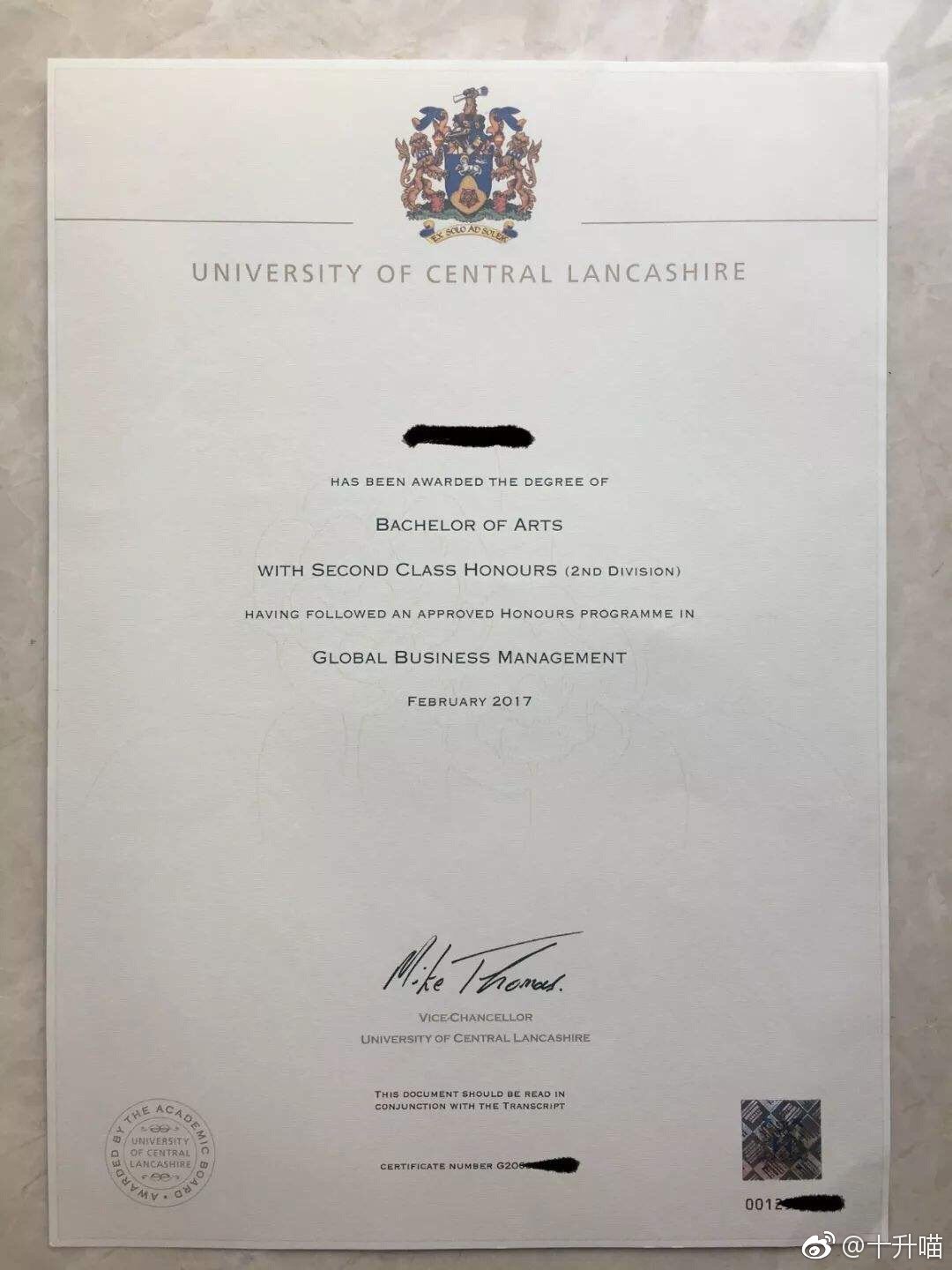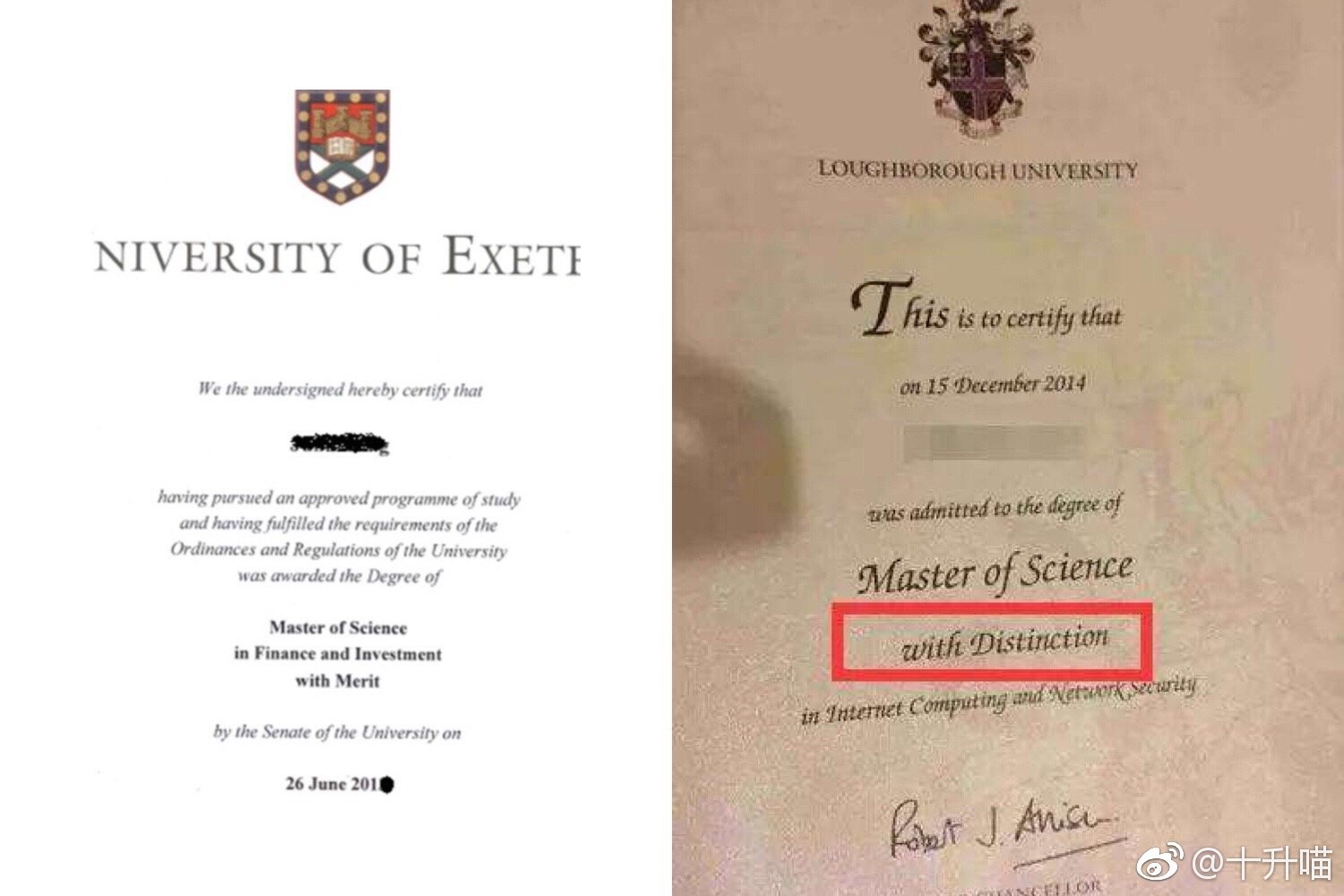C4.1 Degree Classification¶
A Complete Guide to UK University Degree Classifications
In the UK, university degree certificates differ from the graduation and degree certificates issued in China. Upon graduation, Chinese students receive two documents: a graduation certificate and a degree certificate. These documents typically include the student’s name, field of study, university name, official seal, and photograph, but do not indicate specific academic grades or honours.
In contrast, in the UK, whether at the undergraduate, master’s, or doctoral level, students receive a single degree certificate upon successfully completing all programme requirements. This certificate serves as proof of graduation and must be presented when applying for degree authentication back in one’s home country. However, if a student suspends their studies, fails to pass all required assessments, or leaves a bachelor’s programme after only one or two years without graduating, they may receive a different type of credential—such as a Diploma or a Certificate—indicating the level of study they reached. Such qualifications beyond secondary education are generally referred to as Higher Education.
What’s more, UK degree certificates vary by level of study and often include classifications or honours designations. This means that your academic performance is clearly indicated on the final degree certificate.
For reference, below is an example of a standard Chinese bachelor’s degree certificate:

Generally, the standard duration for undergraduate degrees in the UK is three years, while in Scotland it is four years. Some medical programmes take six years. Most Master's degrees are one year, with some programmes lasting two years. PhDs typically take 3-4 years.
In China, there are also many 2+2 or 3+1 programmes, known as Top-up degrees, or pathways from college diplomas to Master's degrees. If a student wishes to study for a Bachelor's or Master's degree in the UK but doesn't meet the entry requirements or has insufficient grades, they usually need to complete a Foundation year. The Foundation course is generally one year, depending on the specific circumstances. For students under 18 wishing to study for a UK undergraduate degree, they typically need to take A-Levels, which is equivalent to the Chinese Gaokao. Currently, five UK universities, including the University of Cambridge (since 2019), accept the Chinese Gaokao scores for direct entry onto undergraduate programmes. For details on which five universities and their specific application requirements, please refer to the detailed guide mentioned earlier.
UK university courses generally include:
Pre-sessional English: For when IELTS scores are below requirement. The duration of study depends on the score. The length of these courses doesn't vary greatly between universities. For example, for a Master's at Coventry University requiring IELTS 6.5, if you have 6.0, you would typically take a 5-week course. You must pass the course's assessment to progress to the main degree programme. Upon passing, you receive a certificate of completion.
Foundation: For those with insufficient grades, to prepare for undergraduate or postgraduate study. It acts as a stepping stone; good foundation results can enable entry to highly-ranked universities. A Foundation certificate is awarded upon completion.
Undergraduate (Bachelor’s Degrees): Leads to a Bachelor's degree upon successful completion.
Postgraduate (Master’s Degrees): Leads to a Master's degree upon successful completion.
PhD (Doctor of Philosophy): Leads to a Doctorate upon successful completion.
Furthermore, degrees at the same level are categorised by discipline:
BA (Bachelor of Arts): Undergraduate degree in Arts
BSc (Bachelor of Science): Undergraduate degree in Science
MA (Master of Arts): Master's degree in Arts
MSc (Master of Science): Master's degree in Science
The difference between Arts and Science lies in the focus: one leans towards humanities, education, arts, music, etc., while the other focuses on mathematics, physics, chemistry, computing, medicine, etc.
Introduction to UK Undergraduate Degree Classifications:
The classification of a UK degree is based on academic performance. The final grade determines the corresponding honours classification, which is printed on the degree certificate. There are four main classes:
First class honours (1st)
Second class honours, upper division (2:1)
Second class honours, lower division (2:2)
Third class honours (3rd)
The pass mark at UK universities is generally 40%, though at some institutions it is 50%. This differs from the 60% pass mark common in China.
For example, at my university, Coventry University, the pass mark is 40%. The undergraduate classifications are based on the following average marks:
40-49%: Third class honours
50-59%: Second class honours, lower division (2:2)
60-69%: Second class honours, upper division (2:1)
70% and above: First class honours
Please note: The corresponding classification will be printed on your final degree certificate. Anyone seeing it will immediately know which class you achieved. For those wishing to pursue a Master's in the UK, especially at higher-ranked universities, the entry requirement is typically at least a 2:2 undergraduate degree. Therefore, aim for higher marks. Importantly, scoring 70% in one module does not equate to a First class degree; the classification is based on the overall final average mark across all three years of study, with the second and third-year marks being particularly crucial.
Below is an example of a UK undergraduate degree certificate; this particular certificate shows a 2:2 classification.

Please note that not every student graduates with a degree certificate, and these certificates are further divided into Honours and Non-Honours degrees. For example:
Diploma or Certificate (A credential similar to a sub-degree). This is awarded if a student leaves their undergraduate programme after only one or two years (this credential can later be used to apply to continue their studies), or if their academic performance throughout the three-year programme is poor, for instance, by failing to submit a dissertation.
Ordinary Degrees (Non-Honours Degrees). This type of degree is awarded if a student completes the undergraduate programme but does not submit a final dissertation/project or if their overall marks are too low. Applying for a Master's degree with an Ordinary Degree can be quite difficult.
Honours Degrees. This applies primarily to the undergraduate level. Generally, if a student passes all exams and dissertation requirements without other issues, such as attendance problems, they will be awarded an Honours degree.
Introduction to UK Master's/Postgraduate Degree Classifications:
Unlike undergraduate degrees, Master's classifications depend on the university. Most universities use the final overall mark to assign one of three grades:
Pass (Average mark of 50%-59%)
Merit (Average mark of 60%-69%)
Distinction (Average mark of 70% and above)
Please note: This classification is calculated based on the average mark across all modules, including the dissertation. If you achieve a Pass, this grade will not be printed on your diploma. However, if you achieve a Merit or Distinction, it will be displayed directly on your Master's degree certificate.
Below is an example of a UK Master's degree certificate showing Merit and Distinction classifications:

Therefore, work hard, everyone. If you're studying for an undergraduate degree in the UK, aim for at least an Upper Second-Class honours, and if you're studying for a Master's, strive for a Merit.